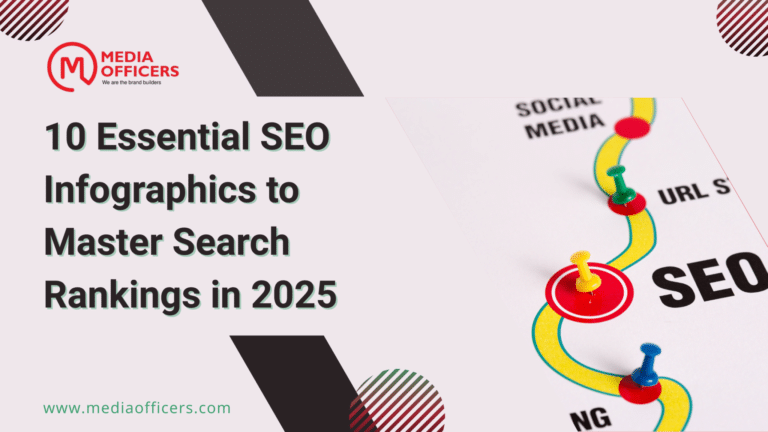Search Engine Optimization (SEO) has evolved significantly since its inception in the early internet era. Initially focused on keyword stuffing and link building. The Future of SEO has developed into a complex strategy requiring expertise in user behavior, search engine algorithms, and technological advancements. The field has adapted to major changes in internet usage, including the proliferation of mobile devices and the increasing emphasis on user experience.
As search engines refine their algorithms and users become more sophisticated in their search queries, Future of SEO continues to evolve. Current trends and developments in SEO require businesses to adapt their strategies to maintain competitive advantage. The rise of voice search and artificial intelligence (AI) represents a new frontier in SEO.
Voice search has gained popularity with the widespread adoption of virtual assistants such as Siri, Alexa, and Google Assistant. This shift in search behavior necessitates a different approach to keyword targeting and content optimization. AI is increasingly influential in search engine ranking and result display.
Machine learning algorithms are becoming more adept at understanding user intent and context. Consequently, businesses must adapt their SEO strategies to optimize content for voice search and AI-driven algorithms, ensuring continued visibility and relevance in search results.
Key Takeaways
- SEO has evolved over time, adapting to changes in technology and user behavior.
- Voice search and AI are shaping the new frontier of SEO, requiring optimization for natural language and conversational queries.
- User experience and SEO have a symbiotic relationship, with search engines prioritizing websites that provide a seamless and valuable experience for users.
- Mobile-first indexing is the future of search, as more users access the internet through mobile devices.
- Visual search is on the rise and will impact SEO, requiring optimization for images and visual content to improve search visibility.
Voice Search and AI: The New Frontier of SEO
The Shift to Conversational Search
Unlike traditional text-based searches, voice searches tend to be more conversational and long-tail, meaning that businesses need to optimize their content for natural language queries. This includes using more conversational language, answering specific questions, and providing concise and relevant information.
The Rise of AI in Search Engines
In addition to voice search, artificial intelligence (AI) is also playing a larger role in how search engines rank and display results. With machine learning algorithms becoming more sophisticated in understanding user intent and context, businesses need to ensure that their content is optimized for AI-driven algorithms.
Adapting SEO Strategies for the Future
By understanding the nuances of voice search and AI, businesses can adapt their SEO strategies to stay ahead of the curve and ensure that their content is being surfaced in relevant search results. This means creating high-quality, relevant content that provides value to users and aligns with their search intent.
User Experience and SEO: A Symbiotic Relationship
User experience (UX) has always been an important factor in SEO, but its significance has only grown in recent years. Search engines like Google have placed a greater emphasis on delivering high-quality, relevant content to users, and this includes considering the overall user experience. A website that provides a seamless and intuitive user experience is more likely to rank higher in search results, as it indicates to search engines that the site is trustworthy and valuable to users.
This symbiotic relationship between user experience and SEO means that businesses need to prioritize UX as part of their overall SEO strategy. From a technical standpoint, factors such as page load speed, mobile-friendliness, and site structure all play a role in determining a website’s search ranking. These technical aspects directly impact the user experience, as slow loading times and poor mobile optimization can lead to high bounce rates and lower engagement.
On the other hand, a well-designed and user-friendly website can lead to higher engagement, longer dwell times, and ultimately better search rankings. By focusing on improving the overall user experience of their website, businesses can not only enhance their SEO efforts but also provide value to their users.
Mobile-First Indexing: The Future of Search
With the majority of internet traffic now coming from mobile devices, it’s no surprise that Google has shifted its focus to mobile-first indexing. This means that Google predominantly uses the mobile version of a site for indexing and ranking, rather than the desktop version. As a result, having a mobile-friendly website is no longer just a nice-to-have; it’s essential for maintaining a strong presence in search results.
Mobile-first indexing has significant implications for SEO, as it requires businesses to ensure that their mobile site is optimized for performance, usability, and content. From a technical standpoint, mobile-first indexing means that businesses need to prioritize mobile optimization in their SEO strategy. This includes ensuring that the mobile site has fast loading times, easy navigation, and responsive design.
Additionally, businesses need to ensure that the content on their mobile site is equivalent to that on their desktop site, as Google’s algorithms will primarily use the mobile version of a site’s content to rank pages from that site. By prioritizing mobile-first indexing in their SEO strategy, businesses can ensure that they are not only meeting Google’s requirements but also providing a seamless experience for their mobile users.
The Rise of Visual Search: How It Will Impact SEO
Visual search is an emerging trend that has the potential to significantly impact SEO in the future. With advancements in image recognition technology, users can now conduct searches using images rather than text. This shift in search behavior has significant implications for SEO, as it requires businesses to optimize their visual content for search engines.
This includes using descriptive file names, alt text, and structured data to help search engines understand the content of images. In addition to optimizing visual content for search engines, businesses also need to consider how visual search will impact user behavior and intent. Visual search allows users to find products or information simply by taking a photo or screenshot, bypassing traditional text-based searches altogether.
This means that businesses need to ensure that their visual content is easily discoverable and provides value to users. By understanding the potential impact of visual search for the future of SEO, businesses can adapt their strategies to capitalize on this emerging trend and stay ahead of the competition.
The Role of Content in Future SEO Strategies

Content at the Core of SEO
Content has always been at the core of SEO, and its importance will only continue to grow in the future. As search engines become more sophisticated in understanding user intent and context, high-quality, relevant content will be essential for ranking well in search results.
Creating Valuable Content that Resonates
This means that businesses need to prioritize creating content that provides value to users and aligns with their search intent. From informative blog posts to engaging videos, businesses need to invest in creating diverse and valuable content that resonates with their target audience.
Distributing and Promoting Content Effectively
In addition to creating high-quality content, businesses also need to consider how they distribute and promote their content across various channels. This includes leveraging social media, email marketing, and influencer partnerships to reach a wider audience and drive traffic back to their website.
Establishing Authority through Valuable Content
By focusing on creating valuable content and promoting it effectively, businesses can enhance their future of SEO efforts and establish themselves as authoritative voices within their industry.
The Impact of Local SEO on Business Growth
Local SEO has become increasingly important for businesses looking to attract customers within a specific geographic area. With the rise of mobile devices and location-based searches, optimizing for local SEO can have a significant impact on business growth. This includes ensuring that business information is accurate and consistent across online directories, optimizing for local keywords, and encouraging customer reviews and engagement.
By prioritizing local future of SEO, businesses can increase their visibility in local search results and attract nearby customers who are actively looking for their products or services. In addition to optimizing for local search, businesses also need to consider how they can provide value to local customers through their online presence. This includes creating localized content, offering promotions or events targeted at local customers, and engaging with the local community through social media or other channels.
By focusing on providing value to local customers through their online presence, businesses can not only improve their local SEO but also build stronger connections with their community and drive business growth. In conclusion, the future of SEO is constantly evolving as new technologies and trends emerge. From voice search and AI to mobile-first indexing and visual search, businesses need to adapt their strategies to stay ahead of the curve.
By prioritizing user experience, creating high-quality content, and optimizing for local search, businesses can enhance their future of SEO efforts and drive growth in an increasingly competitive online landscape. As search engines continue to refine their algorithms and users become more sophisticated in their search behavior, staying ahead of these trends will be essential for maintaining a strong online presence and reaching target audiences effectively.
If you’re interested in the future of SEO, you may also want to check out this article on partnering with the best SEO company in Mohali. It provides valuable insights into how businesses can leverage the power of SEO to improve their online presence and drive more traffic to their websites.
FAQs
What is SEO?
SEO stands for Search Engine Optimization, which is the practice of increasing the quantity and quality of traffic to your website through organic search engine results.
What can we expect in the future of SEO?
In the next 5 years, we can expect SEO to continue evolving with advancements in artificial intelligence, voice search, mobile optimization, and user experience becoming increasingly important factors.
How will artificial intelligence impact SEO in the future?
Artificial intelligence is expected to play a significant role in the future of SEO, with machine learning algorithms being used to better understand user intent and deliver more relevant search results.
What role will voice search play in the future of SEO?
Voice search is expected to become more prevalent in the future, leading to a shift in keyword targeting and the need for more conversational and natural language content.
How important will mobile optimization be in the future of SEO?
Mobile optimization will continue to be crucial in the future of SEO, as more users access the internet through mobile devices. Websites that are not mobile-friendly may see a decline in search engine rankings.
What impact will user experience have on the future of SEO?
User experience will be a key focus in the future of SEO, with search engines placing more emphasis on factors such as page load speed, mobile responsiveness, and overall website usability.




